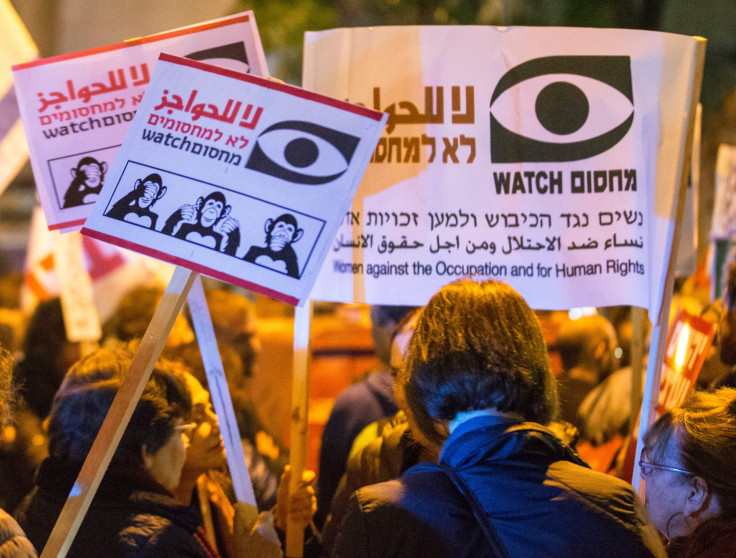Israel Advances Bill To Impose New Restrictions On Foreign-Funded Nonprofits

A proposed Israeli law that requires nonprofit groups in the country to disclose foreign sources of funding was given preliminary approval by the Israeli cabinet Sunday. The bill, which has been criticized by several human rights groups, is expected to be passed by parliament later this week.
The so-called “Transparency Bill,” introduced by Israeli Justice Minister Ayelet Shaked in November, requires nonprofits receiving more than half their funding from foreign governments to note it in their official publications. Critics of the proposed legislation posit that it would only target organizations critical of Israel’s policies toward Palestinians, as these groups rely heavily on donations from European nations.
They also allege that since pro-government and nationalistic nonprofit groups tend to rely on wealthy private donors — who are exempt under the proposed bill — the measure would eventually end up stifling dissent in the country.
“For several years now the Israeli right wing has been trying to hamper the work of civil society NGOs that oppose the policies of the current government. These NGOs are not breaking any laws at time and are extremely transparent, so the government is inventing new ones to stop them from doing their work,” Avner Gvaryahu, a member of Israeli nonprofit Breaking the Silence, which has been actively campaigning against the Israeli military campaign in the occupied territories, said, in a statement released in November.
“Perhaps this is the prerogative of the ruling parties, but this new law will practically only affect the organizations that oppose indefinite occupation over Palestinians which is the very essence of Prime Minister Netanyahu's coalition,” he added.
Zehava Galon, head of the opposition Meretz party, also described the bill as dangerous and a “continuation of political hunting, chasing, and silencing of human rights groups.”
“Beyond the fact that this is a bill that ostensibly seeks to increase transparency, it seeks to label human beings,” she reportedly said Sunday.
According to Haaretz, the legislation is expected to receive the support of all members of the ruling coalition, despite pressure on Prime Minister Benjamin Netanyahu by opposition leaders to prevent the vote.
© Copyright IBTimes 2025. All rights reserved.






















